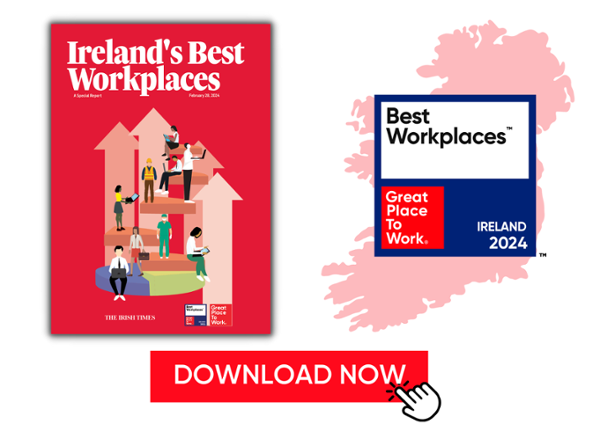The past few years have definitely taught us that being adaptable isn’t a new requirement and isn't going to disappear any time soon. We know that change is inevitable, which means that the benefits of creating an adaptive team will last well beyond the months.
Here’s how to encourage adaptability in your team in the weeks, months and years ahead.
Model adaptability
It was Gandhi who said, “Be the change you want to see”. If you want your team to become more adaptable, you’ll firstly need to model this behaviour yourself.
To do so, be receptive to new ideas and concepts. Respond positively and pivot quickly when conditions change. View challenges as opportunities to find new and unexpected solutions. Don’t lose your cool when faced with the unfamiliar and instead calmly deal with it. Be curious and ask difficult questions. Always have a ‘can do’ attitude, even if that means adjusting your own way of working or routine to better respond to new circumstances. Learn new skills and bounce back quickly when things go wrong.
In short, lead from the front by demonstrating for your team what adaptability in the workplace looks like.
Have a clear common objective
It can be difficult to keep key priorities in mind, especially when those priorities are also shifting. But to deliver the outcomes required, your team must firstly understand what they need to work towards.
So, prepare your team by clearly communicating your objectives and what you expect from them. Define and measure what success looks like. Then ensure your team is aligned with these expectations and keeps them front and centre. All ideas, solutions and output should line up with these expectations accordingly.
By establishing a common objective and clearly defining expectations, your team will be able to adapt plans and solutions and achieve the desired outcomes even when further change occurs in future.

Encourage diversity of thought to embrace innovation
At times of significant change, there’s no point continuing to do the same things you’ve always done. This is the time for innovation, creativity and flexibility. Help your team to understand the problems that need to be addressed and then empower them to work towards solutions.
Diverse teams bring different perspectives to the (remote) table. When change occurs rapidly, a team needs to avoid group think. Instead, your team should be open to each other’s opinions and, crucially, really listen to them.
Make it clear that failure is part of this process, and that’s fine. What’s important is that the people in your team keep experimenting and coming up with new ideas to solve the problems faced.
So, ask your team to avoid judgement and really pay attention when new solutions are proposed by taking a moment to understand and find value in each idea. Such diversity of thought will allow your team to collectively explore ideas that may otherwise not have been proposed or considered. One of the biggest stumbling blocks to innovation occurs when staff fear that others in their team will criticise their ideas. By encouraging diversity of thought, you’ll create an environment where people feel comfortable offering their suggestions without fear of reproach.
Another is a lengthy internal approval process. If several people all need or want to have their say by reviewing every solution proposed, people are less likely to suggest ideas, while those suggestions that are finally approved will not be implemented in a timely manner.
Collaborate
Team members can help each other adapt and innovate by regularly and productively collaborating. Encouraging your team to come together to collaborate allows them to communicate with transparency, share new knowledge, ask questions and support each other. It creates an environment where their knowledge is pooled, and everyone has equal opportunity to share their ideas.
In addition, collaboration often sparks insights and new ideas that one individual may not have been able to come up with in isolation. This helps a team become more responsive to change.
Experiment
In non-business critical areas, you can give your team the freedom to experiment and learn from their results. Look for small problems for which your team can trial a new approach. Ask them to propose a solution, implement it, measure the results and then re-evaluate to see if further changes are necessary.
Take the fear out of this process by making it clear that any failure is a learning opportunity. This gives your staff the opportunity to propose and test ideas, which they then refine and improve, without worrying about blame if the result is less than anticipated. It allows them to learn valuable insights that will help inform future ideas.

Encourage upskilling
Employees who regularly push themselves outside their comfort zone by learning and developing new skills or working on stretch projects are more likely to cope well in uncertain situations. Their curiosity leads them to regularly respond to new trends by learning and adapting their skills, thinking and processes.
At times of change, such people will seek out the tools required to help them adapt. Encouraging your team to regularly upskill therefore not only empowers them to keep themselves at the growing edge of their career but helps them adapt quickly thanks to a growth mindset.
Creating a team that can embrace and adapt to changing priorities quickly can make all the difference between success and failure in today’s world of work. By putting these suggestions in place, you can create a team that’s capable of pivoting and adapting to changing business needs to help your organisation survive and thrive, no matter what comes your way in the weeks, months and years ahead.
More resources:
About Great Place to Work®
Great Place to Work® is the global authority on workplace culture. We help organisations quantify their culture and produce better business results by creating a high-trust work experience for all employees. We recognise Great Place to Work-Certified™ companies and the Best Workplaces™ in more than 60 countries. To join the thousands of companies that have committed to building high-trust company cultures that help them attract, retain and take care of their people, contact us about getting Certified today.
